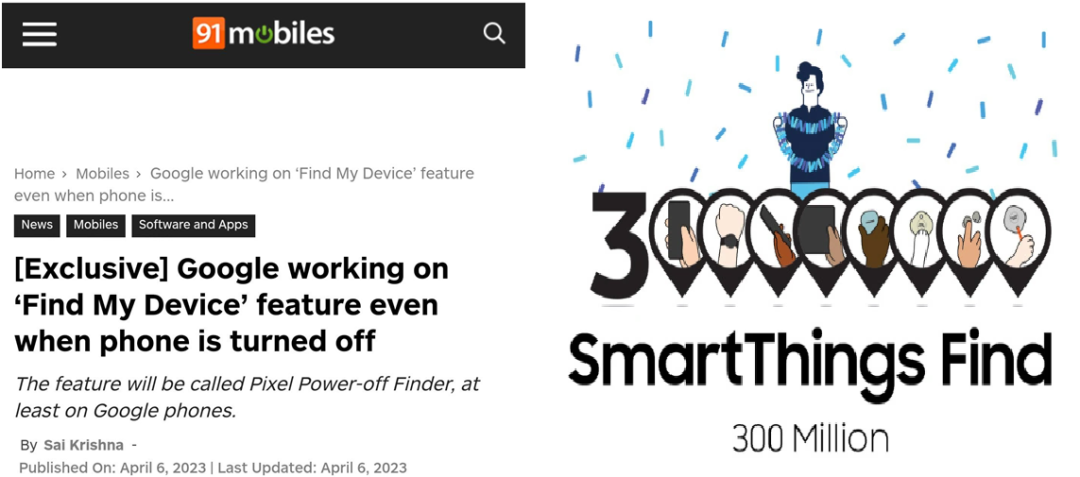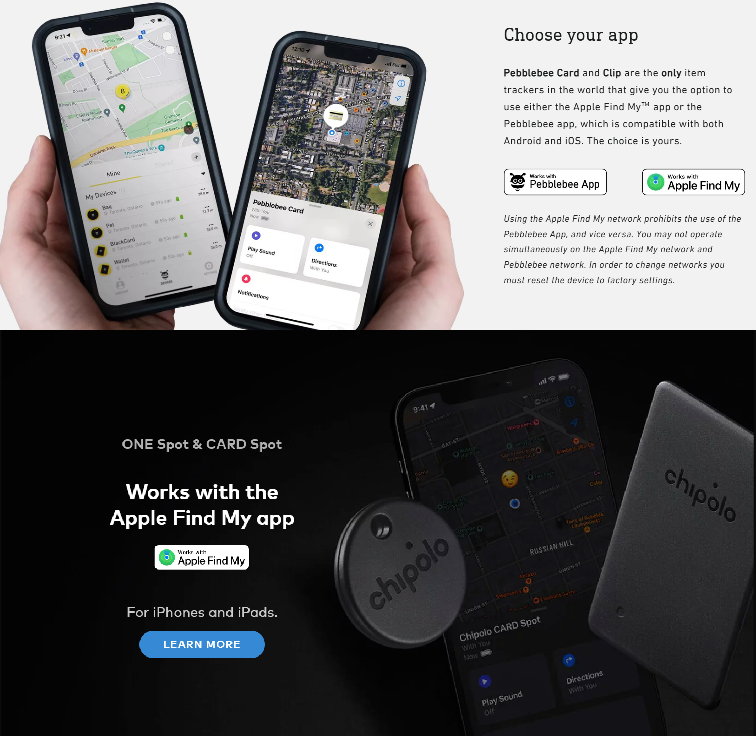Recently, Apple and Google jointly submitted a draft industry specification aimed at addressing the misuse of Bluetooth location tracking devices. It is understood that the specification will allow Bluetooth location tracking devices to be compatible across iOS and Android platforms, detection and alerts for unauthorized tracking behavior. Currently, Samsung, Tile, Chipolo, eufy Security and Pebblebee have expressed support for the draft specification.
Experience tells us that when an industry needs to be regulated, it proves that the chain and the market are already quite large. This also applies to the positioning industry. However, Apple and the giants have bigger ambitions behind this move, which may also overturn the traditional positioning industry. And, nowadays, the positioning ecology represented by the giants has "three parts of the world", which has a considerable impact on the manufacturers in the industry chain.
Positioning Industry Go by Apple's idea?

According to the idea of Apple Find My app, Apple's layout for device location is to perform global networking by anthropomorphizing independent devices into base stations, and then encryption algorithms to complete the end-to-end location and finding function. But as good as the idea is, it is not enough to support the global market with just its own hardware ecology.
Because of this, Apple is also actively seeking to expand the capacity of the program. Dating back to July 2021, Apple's Find My function began to gradually open to third-party accessory manufacturers. And, similar to the MFi and MFM certifications, Apple has also launched the Work with Apple Find My independent logo in the positioning ecology, and currently 31 manufacturers have joined it through the information on the official website.
However, it is clear that the entry of these 31 manufacturers alone is not enough to cover the world, and the largest volume of the global market is still Android devices. At the same time, Google and Samsung have also developed a similar Find My application - Pixel Power-off Finder and SmartThings Find, and, the latter in just two years access volume has exceeded 300 million. In other words, if Apple does not open the interface of location services to more devices, then it is likely to be surpassed by other giants. But the stubborn Apple has never been able to find a reason to finish this thing.
But that's when the opportunity presented itself. As the device's location service was abused by some unscrupulous people, public opinion and the market showed signs of "going downhill". And I don't know if it was just a need or a coincidence, but Apple had a reason to accept Android.
In December of last year, Apple developed TrackerDetect for AirTag on Android, an application that looks for unknown AirTags (such as those placed by criminals) within the Bluetooth coverage area. The phone with the latest software installed will automatically detect the AirTag that does not belong to the user and play an alert sound to do the reminder.
As you can see, the AirTag is more like a port that connects the two separate location ecologies of Apple and Android. Of course, just a tracker is not enough to meet Apple's ambitions, so this Apple-led drafting of the specification, it became its next move.
The specification mentions that it will allow Bluetooth location tracking devices to be compatible across iOS and Android platforms, for unauthorized tracking behavior detection and alerts. In other words, Apple can reach and even manage more location devices through this specification, which is also a disguised way to meet its idea of expanding the ecology. On the other hand, the whole positioning industry will change according to Apple's idea.
However, once the specification comes out, it will also be possible that the traditional positioning industry will be overturned. After all, in the second half of the sentence, the word "unauthorized" may affect some manufacturers that do not support the specification.
In or out of Apple's ecology What will be the impact?
- Chip side
For chip players, the establishment of this specification is a good thing, as there is no longer a gap between hardware devices and software services, consumers will have a wider choice and stronger purchasing power. The positioning chip, as an upstream manufacturer, only needs to supply to companies that support the specification to get the market; at the same time, because supporting a new specification = raising the threshold, it will also stimulate the emergence of new demand.
- Equipment side
For device manufacturers, OEMs will not be affected much, but ODMs, as product design copyright holders, will be affected to a certain extent. On the one hand, the product support specification will lead to a more limited voice, on the other hand, it is easy to be isolated by the market if you do not support the specification.
- Brand side
For the brand side, the impact also needs to be discussed in categories. Firstly, for small brands, supporting the specification can undoubtedly enhance their visibility, but it is difficult to survive if they do not support the specification, and at the same time, for small brands that can differentiate themselves to win the market, the specification may become a fetter for them; secondly, for big brands, supporting the specification may lead to the diversion of their audience groups, and if they do not support the specification, they may face more troubles.
Of course, if the ideal state, all positioning devices will be regulated and corresponding authorization, but in this way, the industry is bound to go to the big integration situation.
What can be learned is that, in addition to hardware giants like Google and Samsung, most of the remaining companies such as Tile, Chipolo, eufy Security and Pebblebee have long been players in the Apple ecosystem that currently support the specification.
And the entire market of thousands of manufacturers of positioning devices, as well as behind the thousands of upstream and midstream enterprises, this specification, if established, and what impact on the relevant industry chain players?

It can be found that through this specification, Apple will be one step closer to its plan of providing positioning services through its global network, but at the same time, it will also transform the positioning ecology of the C-terminal market in a big fusion. And, whether it is Apple, Samsung or Google, the competition boundary between the giants will also start to become blurred, and the future positioning industry may no longer be to fight ecology, but more inclined to fight services.
Post time: May-09-2023